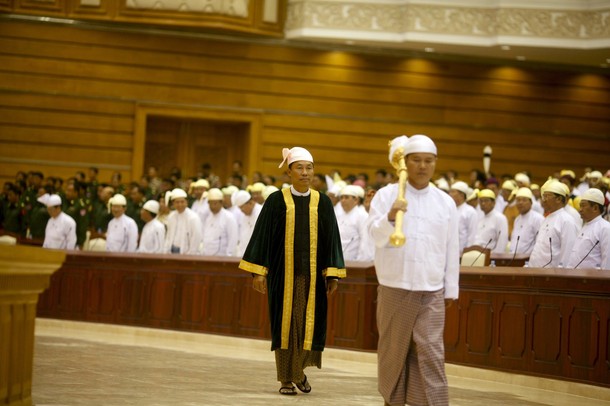Burma’s parliament has agreed to a pay rise for civil service workers and troops that could see some earning twice their current salaries.
The move is seen as a means to combat rampant corruption within the government. Influential parliamentary speaker Shwe Mann said in February that current salaries were too low, contributing widespread graft.
Burmese state television announced yesterday that the pay hike would come into effect on 1 April, the date of the by-elections. All civil servants and members of the armed forces will receive an additional 30,000 kyat ($US37.50) each month.
The announcement said the rise would “help the livelihood” of those targeted, after Shwe Mann warned that salaries were not enough to cover “basic daily expenses”. Staff were supplementing in ways that would damage their “character”, he said.
Burma came third from bottom in the most recent Corruption Perceptions Index, released annually by Transparency International. Only North Korea and Somalia fared worse.
Poor salaries, particularly in the army, have contributed to official complicity in criminal activities: the lowest-ranking troops earn little more than $US10 per month and are forced to provide their own food, meaning many soldiers are tempted into facilitating Burma’s lucrative drugs trade.
All the while, the country’s elite remain extremely well off, with various rights groups accusing top officials of exploiting Burma’s dual exchange rate to hide money that is siphoned out of public coffers and into offshore bank accounts.
Despite being rich in natural resources, corruption and economic mismanagement over the past half century has kept Burma the most underdeveloped country in Southeast Asia.



